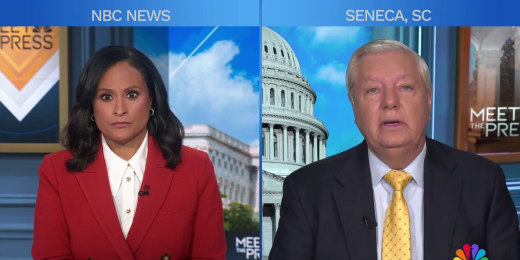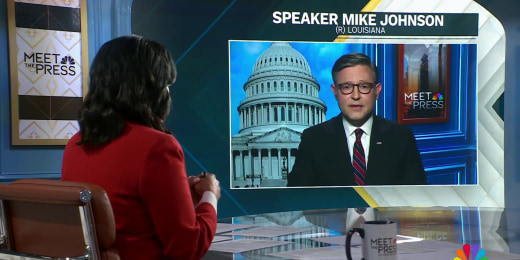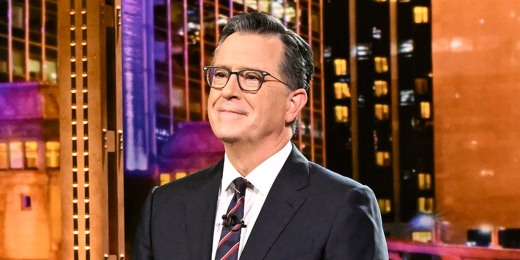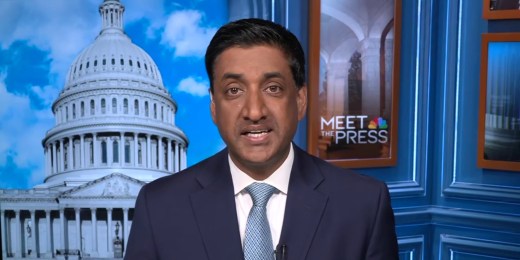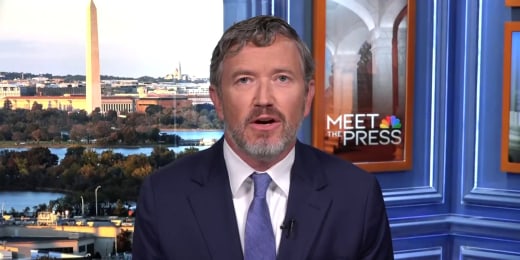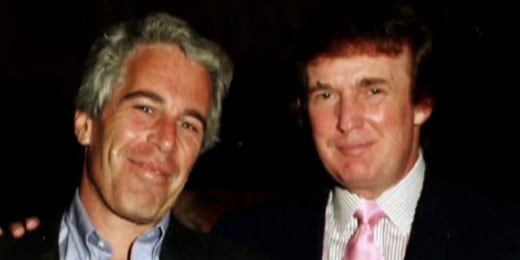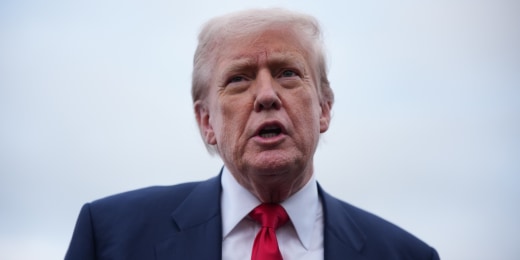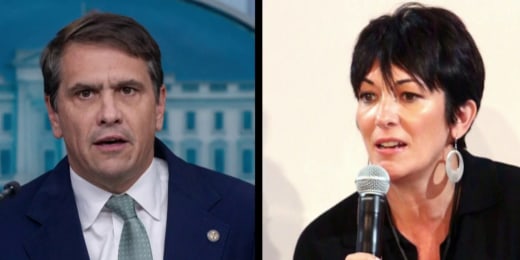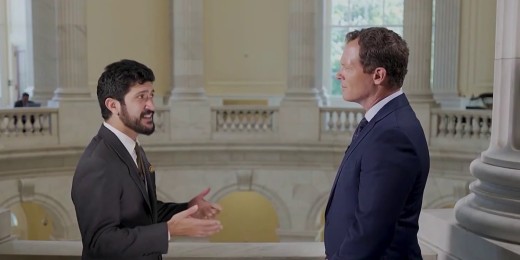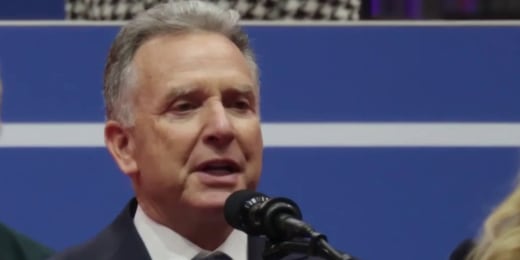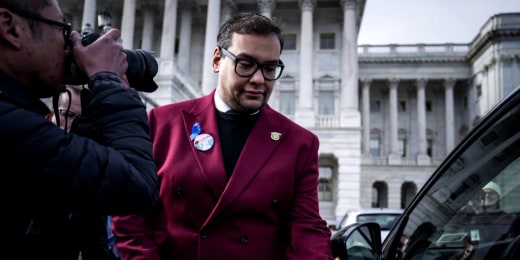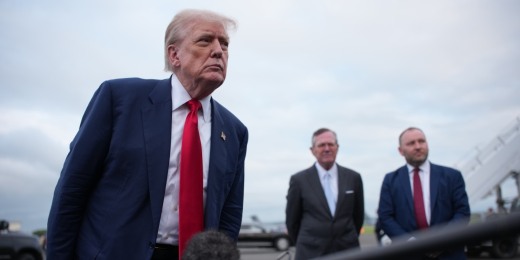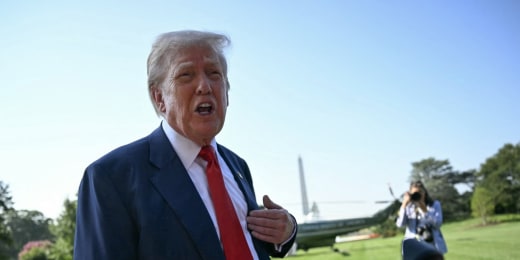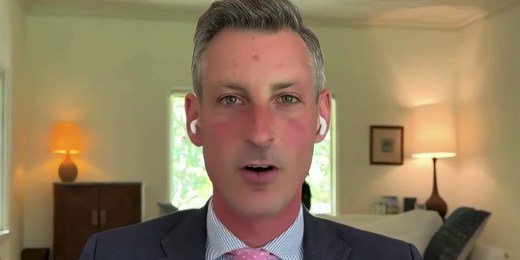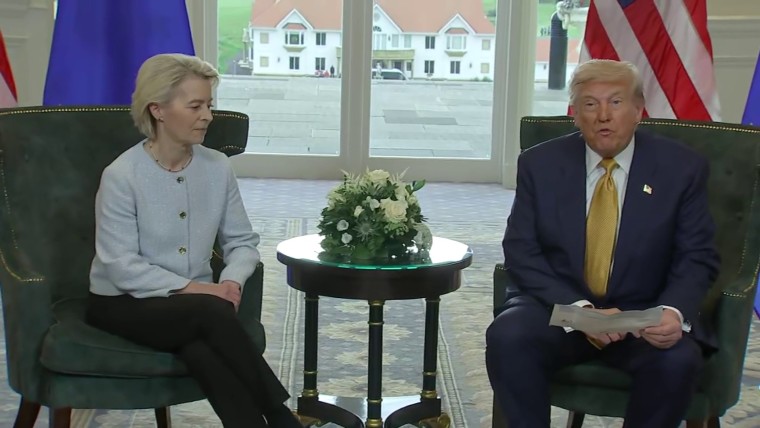

Speaker Johnson says a Ghislaine Maxwell pardon would give him ‘great pause’
03:07

Inside the Politics Around Stephen Colbert’s Cancellation
04:50

Rep. Ro Khanna says Epstein is a winning issue for Democrats: ‘This is about trust in government’
01:23

Rep. Thomas Massie says it should not be ‘politically painful’ to be transparent about Epstein files
01:06

Could the Epstein Controversy Engulf Donald Trump’s Presidency?
02:16

Trump Denies Being Briefed on His Name in Epstein Files
03:01

Archive: Jimmy Carter Meets 106-Year-Old at the White House
01:34

DOJ completes two-day interview with Maxwell
02:37

Former congressman George Santos reports to federal prison
01:38

Congressman seeks to ban ‘surveillance pricing’
04:21

Trump thinks Hamas will have to be ‘hunted down’ by Israel
04:18

Former Rep. George Santos reports to prison for seven-year sentence
00:24

Trump doesn’t rule out Ghislaine Maxwell pardon after Justice Department meeting
15:16

Justice Department continues interview with Ghislaine Maxwell for second day
04:11

Trump: Pardon for Ghislaine Maxwell is ‘something I haven’t thought about’
00:32

Top DOJ official meets with convicted Epstein accomplice
02:41

Paramount-Skydance merger gets final approval from FCC
04:17

Red Cross unable to fully address ‘heart-wrenching’ starvation in Gaza due to aid restrictions
06:42

Fmr. State Dept. spokesman: Calls to investigate Obama are ‘intentional distraction’ from Epstein
06:49
UP NEXT

Sen. Graham says there will be a ‘change in strategy’ in Gaza ‘to destroy Hamas’
02:34

Speaker Johnson says a Ghislaine Maxwell pardon would give him ‘great pause’
03:07

Inside the Politics Around Stephen Colbert’s Cancellation
04:50

Rep. Ro Khanna says Epstein is a winning issue for Democrats: ‘This is about trust in government’
01:23

Rep. Thomas Massie says it should not be ‘politically painful’ to be transparent about Epstein files
01:06

Could the Epstein Controversy Engulf Donald Trump’s Presidency?
In a high-profile announcement from the White House Rose Garden, U.S. President Donald Trump unveiled a sweeping new trade agreement with the European Union on August 21, 2025, marking what he called a “historic realignment of transatlantic commerce.” The central pillar of the deal: a 15% flat tariff ceiling on most EU goods exported to the U.S.
While President Trump praised the deal as a “victory for American industry and fairness,” the response from European leaders was mixed—viewing it more as a necessary compromise than a cause for celebration.
What the Deal Does
Under the terms of the agreement, which takes effect in October 2025, the United States will impose a standardized 15% tariff on most European exports across key sectors including:
Automobiles and parts
Machinery
Chemicals
Pharmaceuticals
Processed foods and spirits
The tariff cap replaces the looming threat of much higher rates—up to 30%—that had been floated earlier this year amid Trump’s escalating rhetoric over Europe’s trade “imbalances” and “unfair subsidies.”
Trump, flanked by U.S. Trade Representative Katherine Tai and Commerce Secretary Byron Donalds, declared, “This is the most balanced trade agreement the U.S. has signed in decades. We are done being ripped off by Brussels.”
In exchange, the EU has secured sectoral exemptions for certain products including:
Aircraft parts
Green technology components
Agricultural seeds
Rare earth minerals
Some of these exemptions are temporary, subject to review in 2027.
The EU’s Price Tag
To secure the deal and avoid further tariff escalation, the European Union committed to a multi-pronged economic engagement package with the U.S.:
$750 billion in energy purchases, including liquefied natural gas (LNG), crude oil, and nuclear fuel.
$600 billion in new investment across American infrastructure, AI, and manufacturing sectors over the next five years.
$40 billion in military technology procurement, including American AI chips and surveillance drones.
European Commission President Ursula von der Leyen acknowledged the deal as “painful but necessary,” emphasizing that the agreement would prevent a trade war and restore a degree of predictability to EU–U.S. commerce.
Business Reactions: Relief & Resentment
Initial responses from the business community have been split:
German automakers, who had faced the threat of 25–30% tariffs, cautiously welcomed the deal, though they warned that even a 15% duty would cut deeply into profits. Volkswagen estimates a €1.2 billion annual cost increase under the new regime.
French agricultural exporters, particularly in dairy and wine, expressed disappointment that their products were not excluded from the tariff list.
Pharmaceutical and tech firms were relieved by the exemptions granted to high-value, low-volume goods, with some calling the deal “survivable.”
A Political Showdown
Domestically, Trump’s announcement was framed as a bold defense of American workers and a rejection of “globalist trade orthodoxy.”
“Previous administrations gave away the store,” Trump declared. “We’re finally putting American jobs and factories first.”
His base hailed the deal as evidence of Trump’s “America First” strategy in action. But critics, including Democrats and EU-friendly think tanks, accused the president of risking transatlantic cohesion and inflaming economic nationalism.
Senator Elizabeth Warren commented, “Trump may call it a deal, but this is more of a shakedown disguised as diplomacy.”
What Happens Next?
While the agreement averts an immediate escalation in tariffs, several open questions remain:
Will the EU seek WTO arbitration on the legality of a flat 15% tariff across diverse sectors?
Will the exemptions be honored long-term, or revisited in 2027 under new political leadership?
Can the EU absorb the economic hit, particularly in export-heavy economies like Germany and Ireland?
Final Take
This trade agreement marks a strategic inflection point in U.S.–EU relations. For Trump, it’s a demonstration of his hardline negotiating style paying off. For Europe, it’s a reluctant recalibration in a global trade order being reshaped by power politics more than mutual benefit.
Whether this deal becomes a bridge to deeper cooperation—or a wedge that deepens transatlantic divides—will depend on how both sides manage the economic and political fallout in the months ahead.
02:16
